Last-Minute NYC Holiday Gift Guide 🎁
We’ve created a holiday gift guide with presents for the intrepid New Yorker that should arrive just in time—

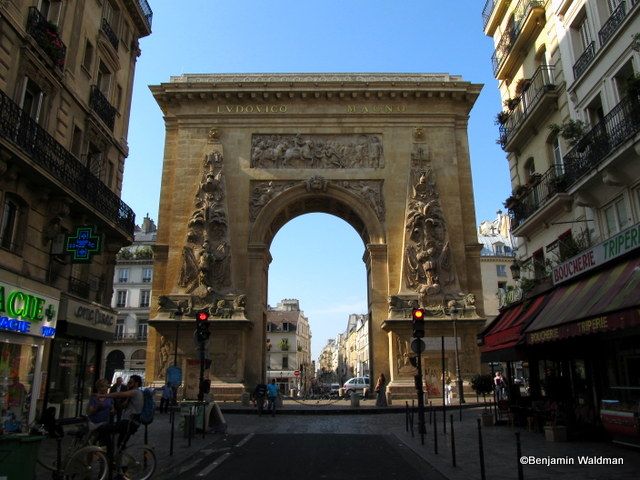
Two triumphal arches often go undiscovered during the usual tourist route in Paris, overshadowed by their ever popular sister L’Arc de Triomphe at the end of the Champs-Elysées. It’s always worth taking this little detour when showing people around Paris, offering them a glimpse of what they never would’ve normally seen.
These portes (doors) replaced the former medieval toll-gates along the city walls of Paris, and were built in honor of Louis XVI’s military victories on the Rhine.
Upon exiting the Stasbourg-Saint-Denis metro in the 13th arrondissement, you’ll find yourself face-to-face with Porte Saint-Denis, the gate where the kings of France would pass to enter Paris coming from the Saint-Denis Basilica. It was inspired by the Arch of Titus in Rome and designed in 1672 by the architect Francois Blondel. You’ll notice that the smaller arches on either side of the main arch, which served as pedestrian passages, have now been closed off.
The inscription at the top reads LUDOVICO MAGNO, “To Louis the Great”, in gilded bronze. Above the arch’s southern facade is a horizontal bas-relief of sculptor Michel Anguier’s “The Passage of the Rhine”, and on the other side is a depiction of the siege of Maastrict. At the base of the southern walls are sculptural emblems of victory: a woman in despair (representing Holland and the Rhine), a lion with a sword beneath his paw, a triumphant king.
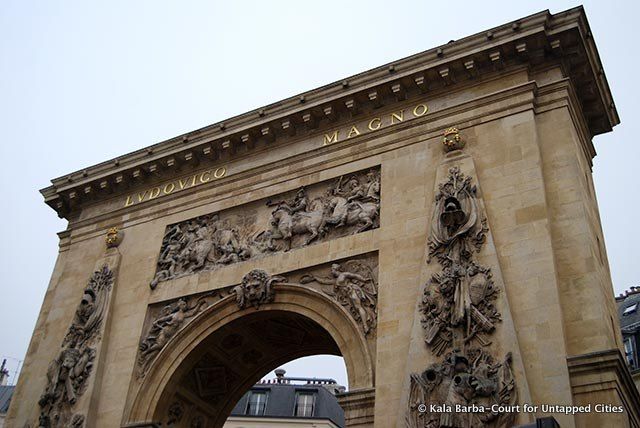
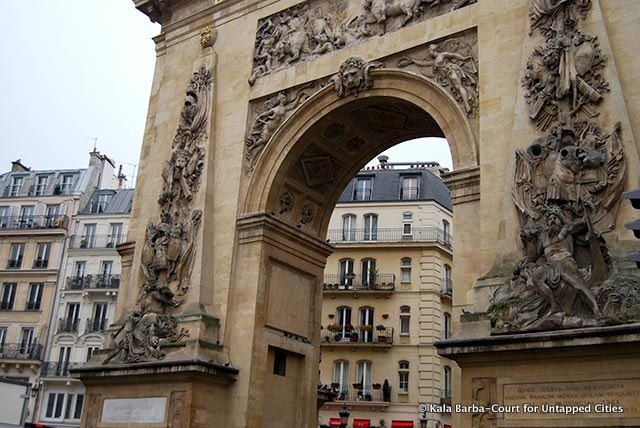
A 5-minute walk down the road along Boulevard Saint Denis will lead you to Porte Saint-Martin, constructed in 1874. Its architect, Pierre Bullet, was a former student of Porte Saint-Denis’ Franà§ois Blondel. Its inscription in Latin at the southern facade reads “To Louis the Great, for having vanquished the German, Spanish, and Dutch armies: the Dean of the Guild and the Aldermen of Paris.” This limestone and marble arch is rusticated, its rough surface making it visually heavier in comparison to Porte Saint-Denis.
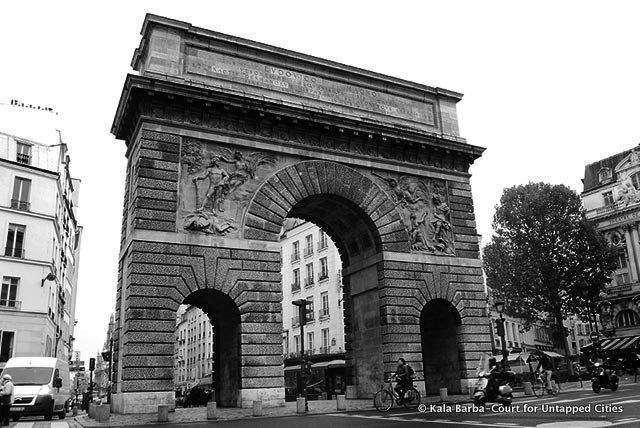
At the northern facade are bas reliefs of Pierre Legros’ “The Capture of Limbourg”, represented by a woman sitting beside a lion, and Gaspard Marsy’s allegory of the defeat of the Germans. The southern side depicts a partly nude Louis XVI as Hercules and the capture of Besanà§on.
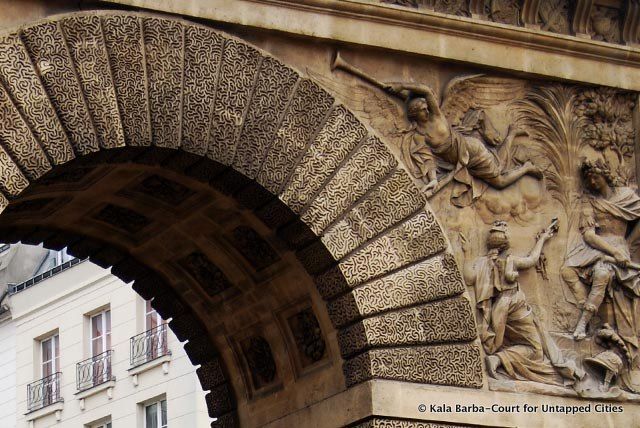
It’s interesting to note that the Porte Saint-Denis was the inspiration for the Arc de Triomphe which was finished in 1836, and later for New York’s Manhattan Bridge Arch, completed in 1909.
Porte Saint-Denis and Porte Saint-Martin
Metro: lines 9, 8 or 4 (Strasbourg Saint-Denis)
Interested in French-inspired architecture? Untapped Cities’ Benjamin Waldman talks about the buildings in New York City inspired by France here. For more on the urban development of Paris during the reign of Louis XIV, check out Le Marais: The History of the Trendiest Swamp in the World by editor Laura Itzkowitz.
Subscribe to our newsletter